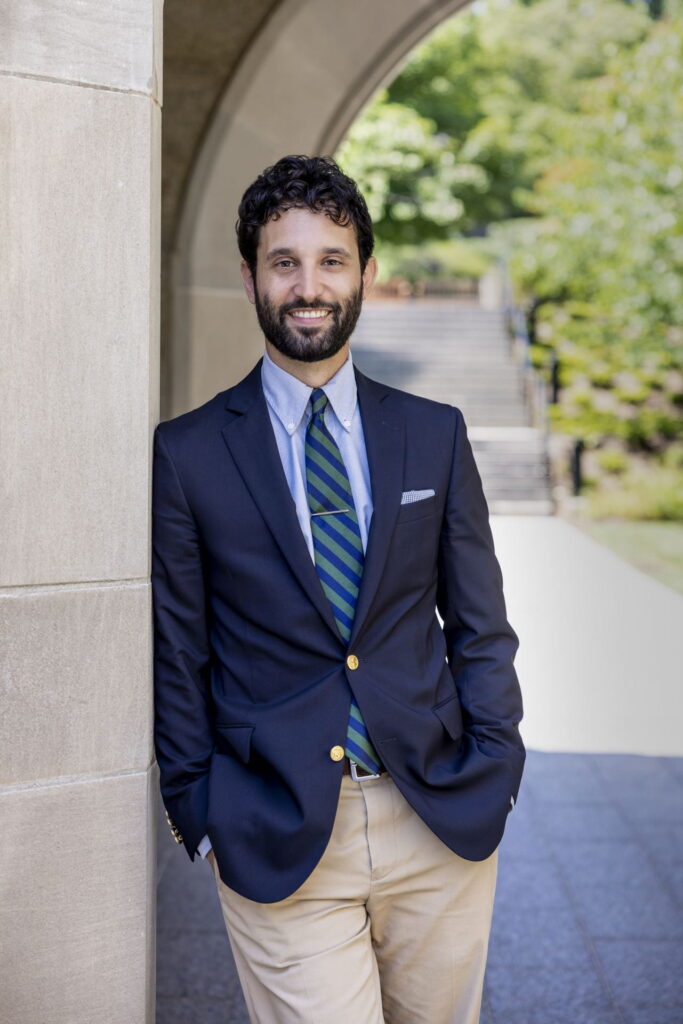I am Professor of English at Boston College, where I teach and write about poetry and poetics. I am the author most recently of the scholarly monograph Unheard Melodies: Apophatic Poetics and Literary Reading (Fordham University Press, forthcoming) and the poetry book Cycle of Dreams (punctum books, 2024). Both books juxtapose fourteenth- and twenty-first-century poetries. As a textual editor, I produced critical editions of three Middle English dream visions: the A version of William Langland’s Piers Plowman (University of Exeter Press, 2025), Geoffrey Chaucer’s Book of the Duchess (for the forthcoming Cambridge Chaucer project), and Death and Life (in preparation for Medieval Institute Publications). I edit the Yearbook of Langland Studies with Alastair Bennett and Katharine Breen. My writing on literature, politics, and higher education appears in the Los Angeles Review of Books, The Atlantic, Vox, and the Chronicle of Higher Education. After five years directing graduate programs in English at Boston College, I now direct the undergraduate Honors program. Among the courses I regularly teach are “Chaucer and Gower,” “Game of Thrones: Medieval English Political Poetry,” “Studies in Poetry,” and “Introduction to Creative Writing.”
My research focuses on meter and poetics (what makes poetry tick). I am especially interested in poetry from the medieval period, which has led to an interest in periodization itself. The greater part of my scholarship addresses the historicity of early English literature: its forms and cultural meanings, and how those are mediated by modern disciplinary study. My scholarly method bridges ‘formalism’ and ‘historicism.’ I am interested in the social implications of literature, the phenomenology of poetry reading, and how we come to know what we think we know about the past. These interests converge on Langland’s Piers Plowman, an enigmatic long alliterative poem of the fourteenth century. More recently, I have been publishing on contemporary avant-garde American poetry, an undertaking that has prompted new questions about the historicity and limitations of prevailing modes of literary reading.
My first two monographs rearticulated English literary history through the cultural lives of metrical traditions, a new approach I call “verse history.” One reviewer praised the methodologies of my second monograph, Meter and Modernity in English Verse, 1350-1650, as “artisanal philology.”
My annotated student edition of the A-text of Langland’s Piers Plowman, reedited from the manuscripts, is published by University of Exeter Press (2025). My edition is modeled on Derek Pearsall’s Exeter edition of the C-text. I have also edited Geoffrey Chaucer’s Book of the Duchess, for the forthcoming Cambridge Chaucer project. A student edition of the alliterative dream vision Death and Life along with the shorter Middle English alliterative poems, of which fifteen survive, is in preparation.
My third monograph, Unheard Melodies, brings my interests in phenomenological poetics to the full gamut of English literature, from Beowulf to Claudia Rankine, and to the music of Bob Dylan, with emphasis on the fourteenth and twenty-first centuries and on questions of methodology. Pivoting historically around John Keats’s translation of Christian theological apophaticism into lyric poetry, Unheard Melodies concerns the paradoxical power of literature to represent what literature cannot represent: novels no one can read, lyrics no one can hear, syllables no one can pronounce, spaces no one can inhabit, experiences no one can have, and more. While poetry is the focus, one chapter considers Vladimir Nabokov’s novels-within-novels. Methodological keywords are lyric, meter, literary reading, and career.
Separate series of notes and articles reconsider the Latin poetry of John Gower; the place of fourteenth-century poets in the consolidation of the field of English literary history over the course of the seventeenth, eighteenth, and early nineteenth centuries; and the Ricardian poets’ use of grammar-school texts.

